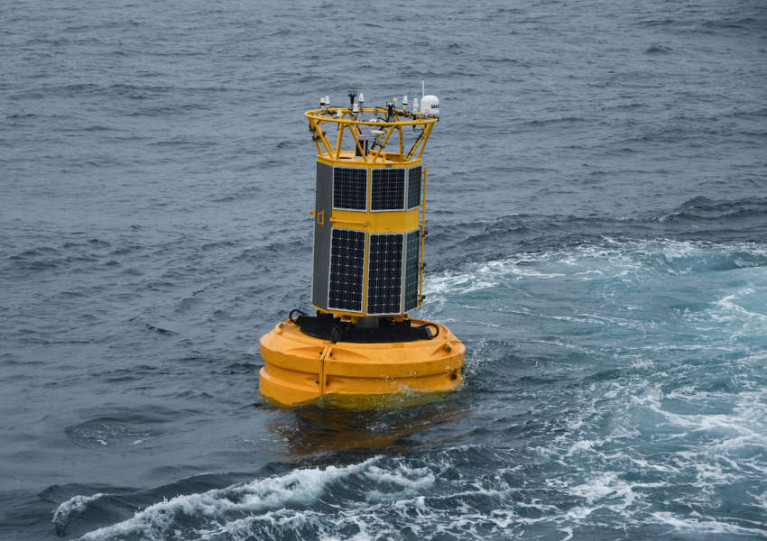Displaying items by tag: Ocean Climate
How we monitor, analyse and understand the changes in our ocean climate is vital in providing the basis for effective policies to address a range of issues and challenges — such as changing ecosystems, food security, rising sea levels and extreme weather events.
This ocean climate work is the focus of this week’s Oceans of Learning series, with resources from the Marine Institute and Met Éireann, the Irish meteorological service.
“Our ocean is fundamental to life on earth and affects so many facets of our everyday activities,” says Marine Institute chief executive Dr Paul Connolly. “One of the greatest challenges we face as a society is that of our changing climate.
“The strong international collaborations that the Marine Institute has built up over decades facilitates a shared focusing on our changing ocean climate and developing new and enhanced ways of monitoring it and tracking changes over time.
"Our knowledge and services help us to observe these patterns of change and identify the steps to safeguard our marine ecosystems for future generations."
The Marine Institute's annual ocean climate research survey, which has been running since 2004, facilitates long-term monitoring of the deep water environment to the West of Ireland.
This repeat survey, which takes place on board the RV Celtic Explorer, enables scientists to establish baseline oceanic conditions in Irish waters that can be used as a benchmark for future changes.
Scientists collect data on temperature, salinity, water currents, oxygen and carbon dioxide in the Atlantic Ocean. This high quality oceanographic data contributes to the Atlantic Ocean Observing System.
Physical oceanographic data from the survey is submitted to the International Council for the Exploration of the Seas (ICES) and, in addition, the survey contributes to national research such as the VOCAB ocean acidification and biogeochemistry project, the ‘Clean Atlantic’ project on marine litter and the A4 marine climate change project.
During the 2019 survey, the RV Celtic Explorer deployed a replacement M6 weather buoy as part of the Irish Marine Data Buoy Observation Network (IMDBON).
The buoys have instruments which collect weather and ocean data including wind speed and direction, pressure, air and sea surface temperature and wave statistics.
This data provides vital information for weather forecasts, shipping bulletins, gale and swell warnings as well as data for general public information and research.
“It is only in the last 20 years that meteorologists and climatologists have really began to understood the pivotal role the ocean plays in determining our climate and weather,” said Evelyn Cusack, head of forecasting at Met Éireann.
“The real-time information provided by the Irish data buoy network is particularly important for our mariners and rescue services.”
Oceans of Learning offers downloadable resources such as videos, fact sheets and interactive activities on Ireland’s climate monitoring projects. To access the resources for this week’s series, visit A Changing Ocean Climate.
For more information on Oceans of Learning, visit www.marine.ie and follow the Marine Institute on Facebook, Instagram and Twitter.





























































